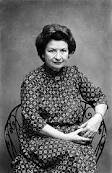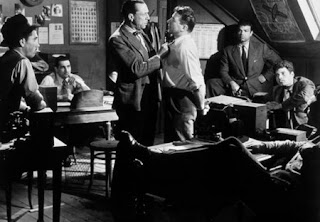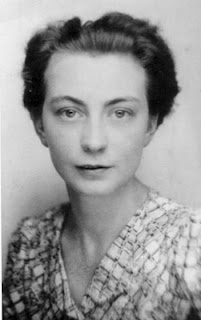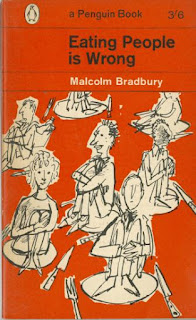A different mind
The curious incident of the dog in the night-time is probably one of the most unusual novels you will ever read. Set on the cusp of the junior/adult market (it was an early example of a novel being released with both an adult and junior cover), the novel concerns 15 year old Christopher Boone, a talented mathematician, who also happens to have Asperger's Syndrome (although this is never stated explicitly in the novel itself). When a neighbour's dog is murdered, Christopher decides to investigate, and the novel is told in the first-person through Christopher's extraordinary mind.
It is an amazing journey through a mind that looks at the world in a completely different way. Published in 2003, the novel won the Whitbread Prize. A rather snobby review in the Times Literary Supplement grumbled about the juvenilisation of the award. But I think that is rather to miss the point. Sure, I can imagine that this book would appeal to a young adult reader. The language is clear, to the point, and not as complex as you might expect from literary fiction - so matching the hero's character. And at heart the plot is quite a simple one, Wellington, the unfortunate dog, is important for driving the plot forward, but ultimately is not really what the novel is about.
It's central theme is celebrating difference. As Christopher eloquently puts it "...everyone has learning difficulties because learning to speak French or understanding Relativity is difficult, and also everyone has special needs, like Father, who has to carry a little packet of artificial sweetening tablets around with him to put in his coffee to stop him getting fat...". Christopher's are just rather more complicated.
At times extremely funny, this is also quite a challenging read. Getting inside Christopher's head can be quite scary, and this is where Mark Haddon, the author, writes superbly. Not since Oliver Sacks have I been as conscious of being inside such a different mind. Unlike Sacks, who is writing about real-life cases from his own viewpoint as a clinician, being inside the head of Haddon's hero is a much more emotional process. We feel Christopher's fear and pain, even if he is unable to express it in the way that we would normally expect.
However, I do have one major caveat. I wonder how accurate is the portrayal of Asperger's Syndrome. The author apparently used an Oliver Sack's case study and other articles as inspiration, but beyond that there seems to be little research. There is a suggestion that many Asperger's sufferers are less than convinced, indeed some are offended by their portrayal in this novel. It's an enjoyable read, but perhaps not entirely worthy of all the plaudits that have been thrown in its direction. It will make you think differently, but be prepared to throw in a pinch of salt.
It is an amazing journey through a mind that looks at the world in a completely different way. Published in 2003, the novel won the Whitbread Prize. A rather snobby review in the Times Literary Supplement grumbled about the juvenilisation of the award. But I think that is rather to miss the point. Sure, I can imagine that this book would appeal to a young adult reader. The language is clear, to the point, and not as complex as you might expect from literary fiction - so matching the hero's character. And at heart the plot is quite a simple one, Wellington, the unfortunate dog, is important for driving the plot forward, but ultimately is not really what the novel is about.
It's central theme is celebrating difference. As Christopher eloquently puts it "...everyone has learning difficulties because learning to speak French or understanding Relativity is difficult, and also everyone has special needs, like Father, who has to carry a little packet of artificial sweetening tablets around with him to put in his coffee to stop him getting fat...". Christopher's are just rather more complicated.
At times extremely funny, this is also quite a challenging read. Getting inside Christopher's head can be quite scary, and this is where Mark Haddon, the author, writes superbly. Not since Oliver Sacks have I been as conscious of being inside such a different mind. Unlike Sacks, who is writing about real-life cases from his own viewpoint as a clinician, being inside the head of Haddon's hero is a much more emotional process. We feel Christopher's fear and pain, even if he is unable to express it in the way that we would normally expect.
However, I do have one major caveat. I wonder how accurate is the portrayal of Asperger's Syndrome. The author apparently used an Oliver Sack's case study and other articles as inspiration, but beyond that there seems to be little research. There is a suggestion that many Asperger's sufferers are less than convinced, indeed some are offended by their portrayal in this novel. It's an enjoyable read, but perhaps not entirely worthy of all the plaudits that have been thrown in its direction. It will make you think differently, but be prepared to throw in a pinch of salt.






.jpeg)




Comments